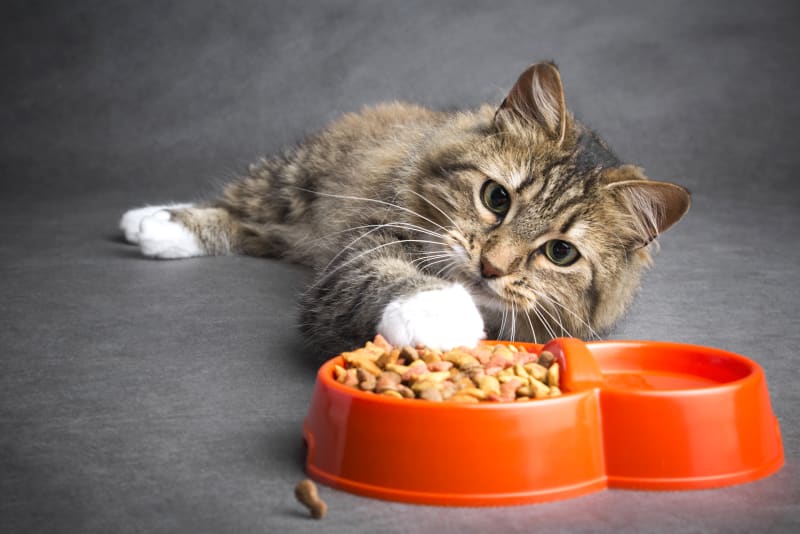What does it mean if my cat won't eat?
The most common underlying reason for a cat to stop eating is due to illness. However, that's not to say that there can't be something else affecting your cat's appetite, so it's best to monitor them closely. If they still haven't eaten after a day, you should call your vet immediately. The sooner the reason is identified, the sooner treatment can begin so your cat can start to feel better.10 Reasons Why They May Not be Eating
- Dental/tooth pain, infections or injuries that can make eating or chewing painful, such as inflamed gums, an abscess, a broken tooth, oral tumors, or other inflammatory issues
- Gastrointestinal issues (including parasites, colitis, gastroenteritis, or cancer)
- Kidney disease
- Pancreatitis
- Digestive obstruction, indigestion, or constipation
- Recent vaccination or medication
- Anxiety, stress, or depression (this includes major changes to your cat's routine or home)
- New food
- Metabolism might be slowing down, especially in older cats
- They might be full (outdoor cats often find things to eat when outside)
How long can my cat go without eating?
Like people, cats can go longer without food than water. Cats can survive for about two weeks without eating but only three days without drinking. The longer your cat goes without proper nutrition, however, the weaker they become, so it's important to contact your vet if you suspect they haven't eaten in a day or more. They will be able to diagnose the cause and hopefully get your cat back on track to eating regularly.
How can I get my cat to eat?
There are several things you can try to see if your cat will begin eating again.
- Considering stress can be a cause, ensure their dish is in a quiet area.
- Check to make sure both their food and water bowls are clean.
- Give them canned or "wet" food, or meat baby food.
- Try drenching their solid food with the juice from a tuna can.
- Cat's don't like cold food, so you can try heating it (just be sure to mix carefully after to avoid overly-hot areas).
When to Seek Veterinary Care
Many of the potential reasons for your cat to lose their appetite are serious medical concerns. Your vet can help to determine the cause and best plan of treatment.
The reasons why your cat has stopped eating can vary greatly, but despite the cause, it's important to bring your cat to your vet if it lasts more than 24 hours. It's also extremely important to monitor and contact your vet if they are not drinking or are displaying other symptoms or behavioral changes.
If you are concerned about your cat's loss of appetite, please contact our Bartlett veterinary clinic today for more information or to book an appointment.

Looking for a vet in Memphis?
We're always accepting new patients, so contact our veterinary hospital today to book your pet's first appointment.Related Articles View All
Heimlich Maneuver For Dogs: What To Do If My Dog Is Choking
What should you do if something gets lodged in your dog's throat and they begin to choke? Here, you will find helpful information on the Heimlich maneuver for dogs and what to do if your dog is choking.
Signs That Your Dog May Have a Cavity
Can dogs get cavities? What are the signs of cavities in dogs? In today's post, you will find the answers to these dog cavity questions and more.
How can I help my dog with allergic dermatitis feel better?
Our Bartlett vets often see dogs with skin issues caused by allergens. In today's post, we discuss the different causes of allergic dermatitis, signs of dog skin allergies, and how this condition can be treated.
Periodontal Disease in Dogs - Symptoms & How It's Treated
Healthy teeth and gums play an important role in your dog's overall health, but many dogs don't receive the dental care they need to prevent oral health problems from arising. Our Bartlett vets explain.
